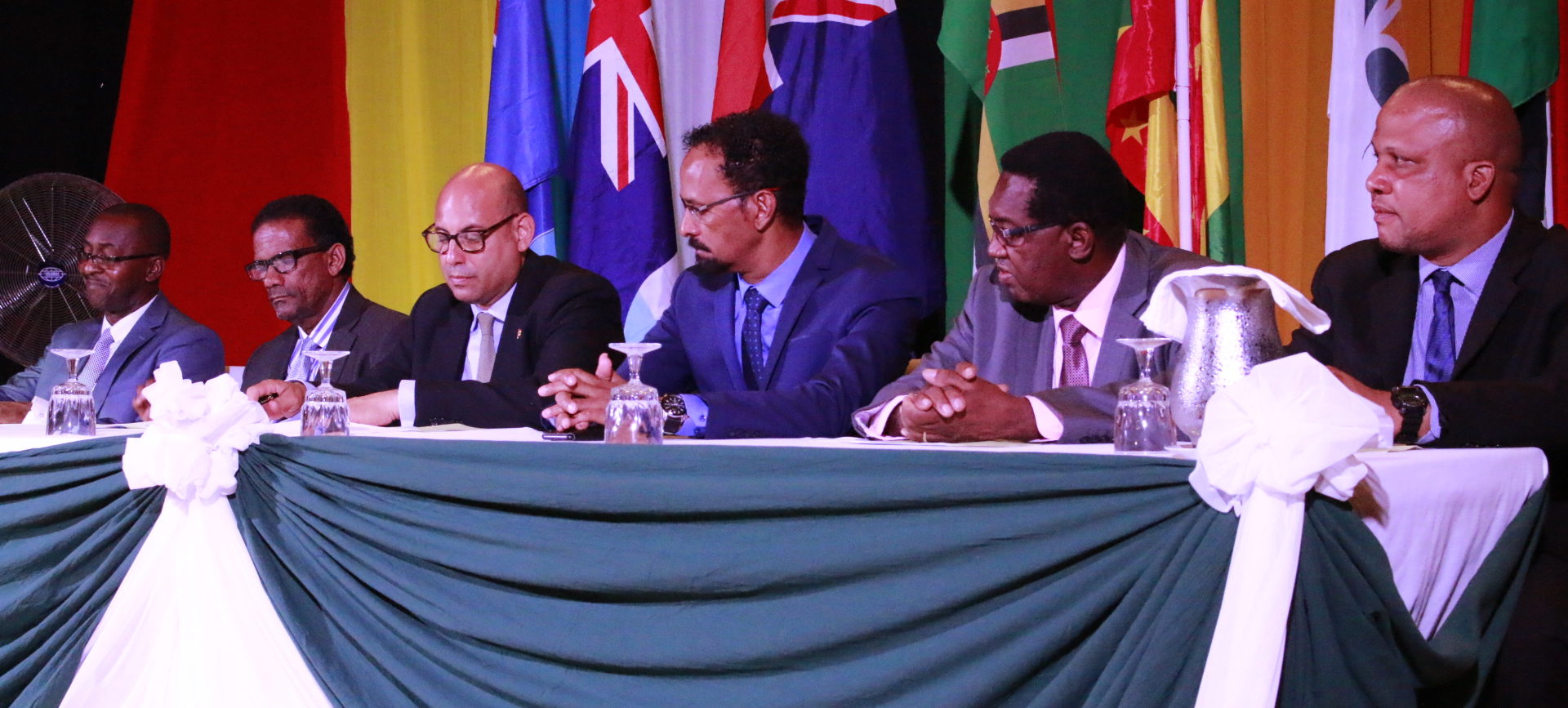Environment Ministers Agree on Unified Approach to Tackle Climate Change Issues
The OECS 5th Council of Ministers of Environment and Sustainability (COMES5) Meeting concluded on the evening of Wednesday, July 11 with Ministers of Environment identifying several areas for greater collaboration and unified action, to address a number of climate change issues affecting the region.
Speaking at a press briefing following the conclusion of the Ministerial meeting on Wednesday, incoming Council Chair, the Honourable David Osborne gave his commitment to continue the dialogue and work with the Ministers of Environment from across the region, to find solutions to challenges, such as the invasion of the sargassum seaweed.
Minister Osborne stated that the prevalence of the sargassum seaweed in the region is a critical situation right now and it formed a major part of the discussions. He acknowledged that Montserrat had not been as severely impacted as some of the other islands; but said it’s a matter which needs urgent attention. Another major topic of deliberation during the meeting, as pointed out by Minister Osborne, is the need for prompt and proper aid to be provided to disaster stricken islands.
As incoming Chair of the Council, Minister Osborne is expected to coordinate the implementation of the recommendations coming out of the meeting over the course of the year.
Outgoing Chair, Grenada’s Minister for Climate Resilience, the Environment, Forestry, Fisheries and Disaster Management, the Honourable Simon Stiell in his remarks, said during the meeting significant effort was placed at looking at what took place in last year’s hurricane season and the impact it had on Member States.
Minister Stiell also shared his views on the need for collective approach to climate change.
“The spirit that is engendered within the commission is that of identifying common agendas and common ground that not only unite us in terms of the challenges we face, but in terms of identifying the collective solutions. So rather than seeing the challenges on a national level alone and trying to come up with national solutions, there is need for us to work collectively,” he said.
The COMES5 Meeting was held under the theme ‘Building Resilience on the Frontlines of Climate Change’.
Following the Meeting, a signing ceremony for a project which will contribute to the preservation of Caribbean ecosystems was also conducted. The ‘Integrating Water, Land and Ecosystems Management in Caribbean Small Island Developing States’ (IWEco) project is valued at twenty million US dollars and is expected to have the following outcomes:
- Enhanced livelihood opportunities and socio-economic co-benefits for targeted communities from improved ecosystem services functioning.
- Strengthened national and regional systems for monitoring of environmental status with respect to key international agreements.
- Strengthened capacity of national and regional institutions and other stakeholders for water, land, and ecosystems management that accounts for climate change.
The participating OECS countries that will be implementing the project are Antigua and Barbuda, Grenada, St. Kitts and Nevis, St. Lucia and St. Vincent and the Grenadines.
The commitment document to implement the programme over the next four years was signed by the Ministers who were present at the meeting. They are, the Honourable Molwyn Joseph (Antigua and Barbuda), the Honourable Simon Stiell (Grenada), the Honourable Eugene Hamilton (St. Kitts and Nevis) and the Honourable Herod Stanislas (St. Lucia).
Overseas Territories such as Montserrat, do not qualify for the IWEco project due to their connections to the United Kingdom.
For more details on the IWEco project, please visit http://www.cep.unep.org/gef-iweco-1/gef-iweco
| This story aligns with OECS Strategic Objective No.4: Assure the Security and Well-being of Citizens. |
| This story aligns with OECS Strategic Objective No.5: Drive Key Economic Priorities. |
















